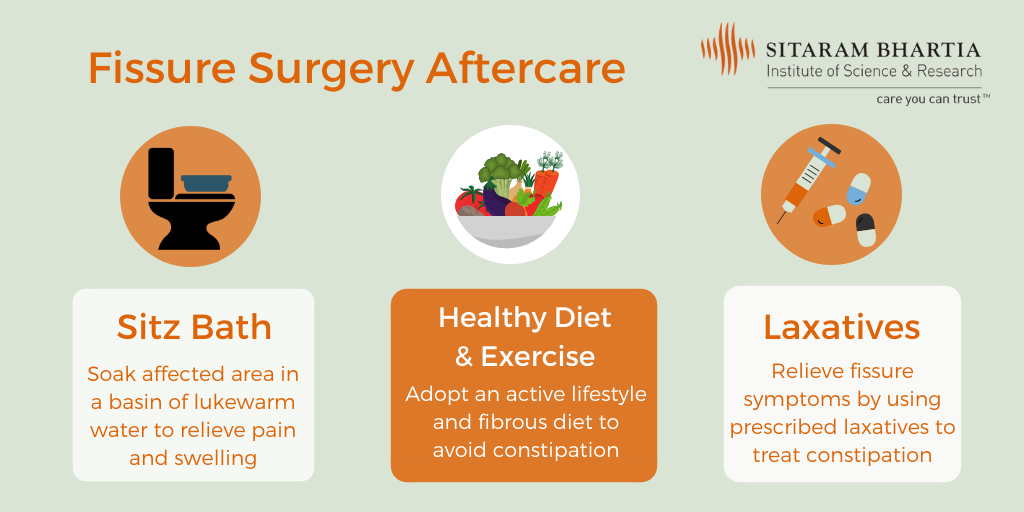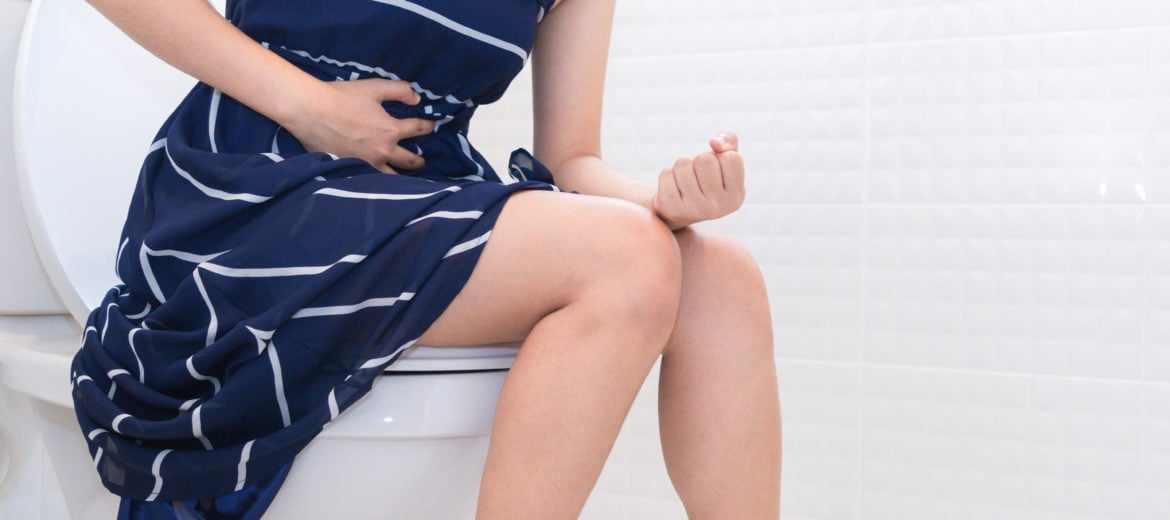Anal fissures appear as a simple cut or tear in the anus and can be managed with non-surgical options in most cases. Anal fissure operation is required in some cases when treatment of fissure using medicine fails.
Does Fissure Need Surgery?
“Anal fissure operation is carried out if fissure persists for more than 8 weeks,” says Dr. Amarchand Bajaj, Consultant Surgeon, at Sitaram Bhartia. It is commonly suggested for chronic and some acute anal fissure cases.
Anal fissures are accompanied by excruciating pain and bleeding. If non-surgical treatment fails and you develop growths on the skin (skin tags) as well, you might require anal fissure operation.
Delaying proper treatment can make your anal fissure harder to treat.
Is Fissure Surgery Painful?
Chronic anal fissures are surgically removed using a minimally-invasive procedure called lateral internal sphincterotomy (LIS). A small portion of the anal sphincter is cut to allow the fissure to heal.
“The procedure is carried out laparoscopically, which employs fewer cuts and results in minimal pain and a much faster recovery,” says Dr. Bajaj.
How long does it take to recover from a fissure surgery?
“Since it is a day-care procedure, anal fissure surgery recovery time is short.”
“Patients can be discharged on the same day and resume routine duties the next day.”
Anal Fissure Surgery Side Effects
The main complication associated with anal fissure operation is anal incontinence, where the patient has no control over their bowels.
Dr. Bajaj reassures, “Chances of anal incontinence are almost negligible when you are in the hands of experienced surgeons.”
Here are some general precautions after anal fissure surgery you can take –

- Sitz bath for fissure – Warm tub baths will be advised after surgery for 5-10 minutes several times a day.
They help in soothing anal muscles, especially after bowel movements.
- Stool softener – For a few weeks after fissure operation, use stool softeners to aid the healing process.
- Change in diet after fissure surgery – You can start eating normally from the day of surgery. Adopt a fibre-rich vegetarian diet and increase fluid intakes to stop anal fissure from recurring.
- Alcohol & Tobacco slow recovery – Lessen your drinking and smoking habits. Smoking and alcohol intake post-surgery increase risk of infection and lead to complications.
“Anal fissure operation is a small procedure that can greatly improve your condition” emphasizes Dr. Amarchand.
“Get in touch with a surgeon early to make sure you get the right treatment at the right time.”
With his area of expertise in Advanced Laparoscopic, Bariatric & General Surgery, Dr. Amarchand S. Bajaj provided his editorial inputs for this blog post.
Come in for a consultation with Dr. Amarchand Bajaj! Call us on +918800816657 to book your appointment.

